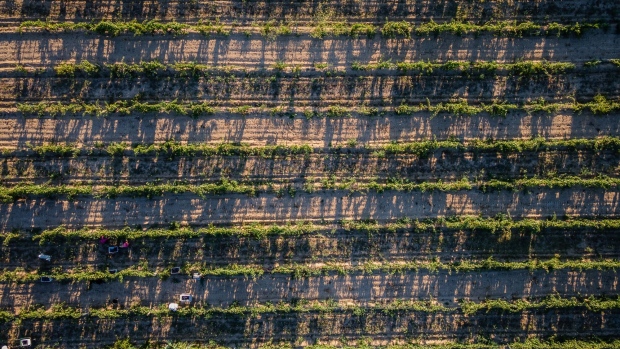Apr 23, 2024
Cava Maker Freixenet Plans Staff Cuts Due to Climate Change
, Bloomberg News

(Bloomberg) -- One of Spain’s best-known makers of Cava, the country’s famed sparkling wine, is looking to furlough hundreds of workers after a years-long drought slashed grape production.
Freixenet SA is going through an “exceptional situation” because of the extreme drought affecting the region of Catalonia, according to a company statement seen by Bloomberg. On April 22 the company asked the Catalan government to approve the furlough of as many as 615 workers starting in May, according to the statement.
The “terrible drought, originated by climate change, is affecting us since 2021 but especially since 2023” and due to this the company needs to adjust its workforce, Freixenet Vice-President Pedro Ferrer said in a separate internal statement signed with other company executives. “We had never seen a situation like this in over 100 years of history.”
A company press officer confirmed the content of the statement.
The decision by Freixenet marks a rare move by a company to link staff cuts to climate change. Catalonia is experiencing the worst drought on record after more than three years of below-average rains and record-high temperatures, which has led the regional government to declare a state of emergency for water.
Catalan reservoir levels in the region’s eastern basins are at 18% of their capacity, the lowest in Spain.
Cava is a white sparkling wine made using a similar method as Champagne. Freixenet, which is controlled by Henkell, and Codorniu SA produce millions of bottles every year out of their estates in the Penedès region in Catalonia, with a large share of their production sold abroad at relatively cheap prices.
Although concerns over the drought are shared by everybody, it has not affected Codorniu, the company said in a statement Tuesday. The firm’s supplies, production and distribution in Spain and abroad are ensured for the next few years, according to the statement.
The Cava sector employs 4,000 workers directly on a permanent basis, with the workforce doubling or even tripling during harvest season, according to the CCOO union group. Another 3,000 to 4,000 people are employed in companies across the Cava supply chain.
“We were always aware that the lower grape production would result in a lower production of Cava bottles and ultimately have consequences on the workforce,” José Antonio Hernández, secretary general for the CCOO industry division in Catalonia, said in a telephone interview. “But we don’t agree that conditions exist for a furlough and we ask the company to sit down with workers’ representatives and negotiate.”
(Updates with Codorniu comment in eighth paragraph)
©2024 Bloomberg L.P.


